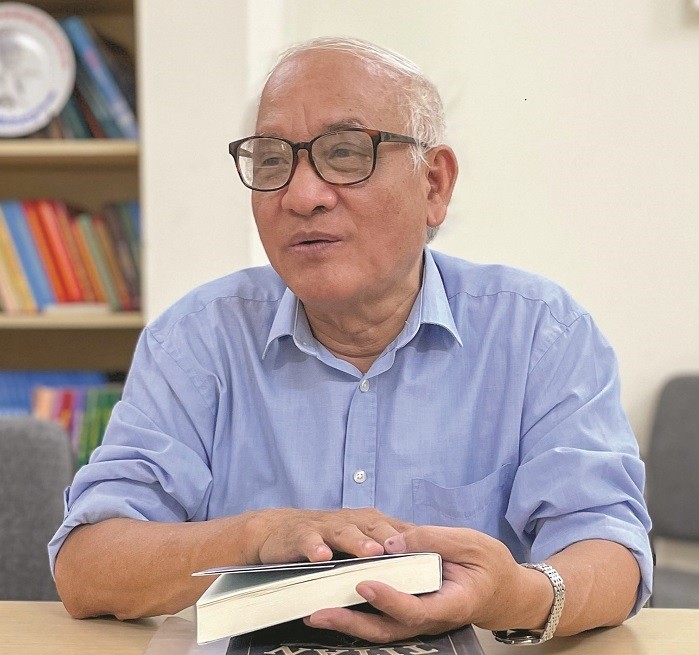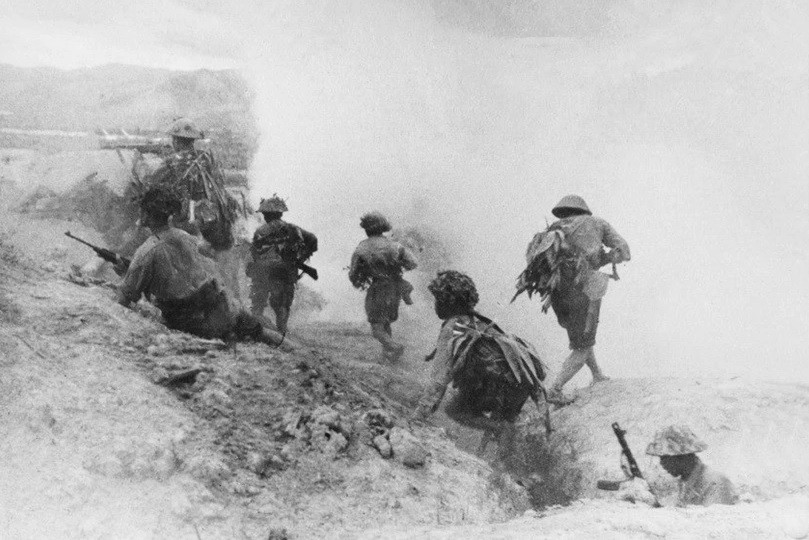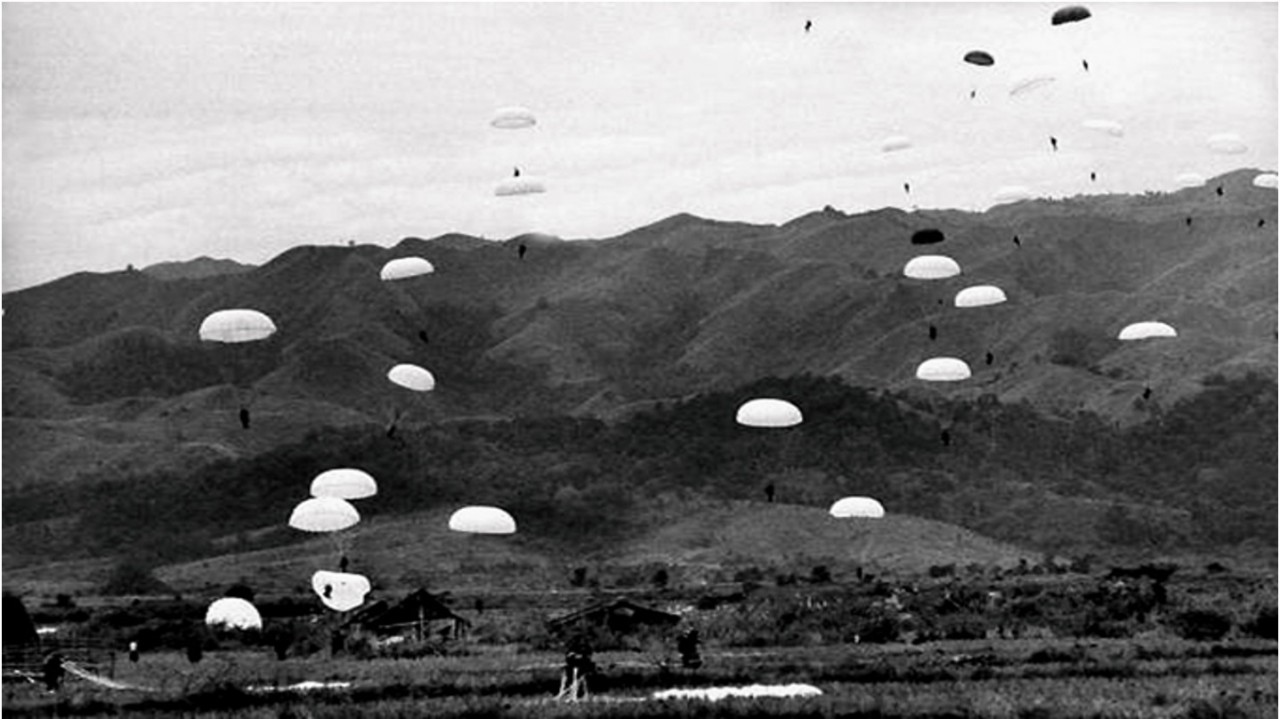
Coordination among 3 fronts at the Geneva conference
Latest
How was the domestic and international landscapes in the 1950s that forces major powers to sit down for negotiations in Geneva regarding the situation in Viet Nam and Indochina, sir?
With the motto of conducting a comprehensive people’s war against the French colonial invasion, since late 1953, the Party Central Committee engaged in diplomatic fronts. The world and domestic situations profoundly influenced this decision.
During that time, the “Cold War” was fierce. The signing of the armistice agreement in the Korean peninsula made the Soviet Union and China realize that conflicts around the world, whether in the Korean peninsula, Indochina, or Europe, could be resolved through negotiations. In the Soviet Union, following Stalin’s death, the new leadership adjusted its foreign strategy, emphasizing international détente to focus on nation-building.
China just got out of the “Resisting America and Assisting Korea War” resulting in significant losses. So, there was an urgent need for national reconstruction and improvement of people’s livelihoods. Therefore, despite being on the same “poles” in the Cold War, both the Soviet Union and China supported and assisted Viet Nam’s resistance war, albeit with their own strategic calculations and interests.
 |
| Assoc. Prof., Dr. Tran Duc Cuong, President of the Association of History Science. (Photo: WVR) |
In Viet Nam, Laos and Cambodia, by 1953, the people’s resistance against French colonialism and American intervention
n the three Indochinese countries had achieved significant victories. In France, there was a movement calling for the end of the “dirty war” and avoid excessive reliance on American aid. It called for a focus on resolving economic and social difficulties. Along with that, military failures in the Indochina battlefield forced France to reconsider its position.
In late October 1953, the French National Assembly opened a discussion on the Indochina War. Many French legislators demanded immediate negotiations with Ho Chi Minh’s government. On January 12, 1953, French Prime Minister Laniel had to declare: “If a dignified solution emerges within the regional or international contexts, France will gladly accept a diplomatic solution.”
Against that backdrop, how did the Party Central Committee and President Ho Chi Minh seized the opportunity and coordinated various fronts to participate in the tense negotiations with the superpowers?
Timely grasping the global dynamics and influencing French public opinion, in an interview with Expressen (a Swedish newspaper) on November 26, 1953, President Ho Chi Minh clearly stated Viet Nam’s position and principles: “The basis for the armistice in Viet Nam is the sincere respect by the French government for the true independence of Viet Nam... The armistice negotiations are primarily between the Democratic Republic of Viet Nam and the French government.”
After President Ho Chi Minh’s interview, the Central Secretariat Committee of the Vietnamese Labor Party issued a cirular, which clearly stated that: President Ho Chi Minh’s declaration arises from the earnest desire for peace of our people, the French people, and the people of world. On January 25, 1954, the foreign ministers of the Soviet Union, the United States, Britain, and France met in Berlin. On January 28, 1954, the parties involved agreed to convene an international conference in Geneva to resolve the issues in the Korean peninsula and establish peace in Indochina.
Coordinating military struggle with political and diplomatic efforts was one of the wise strategies of the Party, the State, and President Ho Chi Minh at various times, including the period before and during the Geneva Conference. Events in diplomacy, politics, and military affairs at that time were urgent and dynamic. On April 26, 1954, the Geneva Conference opened amid the fierce offensive people on the Dien Bien Phu stronghold, putting the French forces in a critical situation.
 |
| The Viet Minh forrmed many sniper and ambush troops during the Dien Bien Phu campaign, 1954. (Photo: VNA) |
However, because the battle at Dien Bien Phu had not concluded and the French, with American assistance, hoped to change the war’s direction, Western countries had not yet accepted the participation of the Democratic Republic of Viet Nam (DRV) in the Conference.
However, this situation did not last long. On May 1, 1954, as the elite units of the Vietnamese People’s Army launched their final attacks on the Dien Bien Phu stronghold. Faced with an irretrievable defeat, on May 2, 1954, the United States and France hastily announced through the Soviet Union their acceptance of the official presence of the DRV delegation at the Conference.
While the Indochinese battlefield raged on, primarily in Viet Nam, negotiations in Geneva were also intense and complex, especially with the fierce struggle of the DRV delegation. The DRV’s stance was to cease hostilities throughout Indochina, address both military and political issues simultaneously for all three countries of Viet Nam, Laos, and Cambodia based on the principles of respecting independence, sovereignty, unity, and territorial integrity of each country.
Regarding the outcomes of the Geneva Conference, General Vo Nguyen Giap affirmed that: “The people’s major victory in Dien Bien Phu and at the Geneva Conference have eloquently proved the correct policy of our Party in the long and arduous struggle of the nation.” Surely, you must fully sympathize with this assessment?
Yes, I do. During the course of the Geneva Conference on Indochina, the direction given by the Party and President Ho Chi Minh to the activities of the Viet Nam delegation at the Conference were extremely precise and worthy. From July 15 – 17, 1954, the Party Central Committee convened its 6th conference (extended) and affirmed that: “The domestic developments are increasingly favourable for us, and the enemy is facing multitude of major difficulties”. Analyzing the international and domestic developments, the conference stated that: “If the American empire directy engages in the Indochina war, the balance of power between us and the enemy may change unfavorably for us.”
After the unflaggingly struggle of the DRV delegation and the compromise between the Soviet Union, China, the U.S., France, the UK, on the morning of July 21, 1954, the Agreement on the cessation of hostilities in Indochina was signed. France agreed to end the war in Indochina and committed to withdrawing its troops, recognizing the independence, sovereignty, and territorial integrity of Viet Nam, Laos, and Cambodia...
There are opinions saying that, the DRV could have achieved bigger results at the Geneva Conference. What are your thoughts?
In the conclusion of the Central Military Party Standing Committee in 1988, once again, it affirmed, “Signing the Geneva Agreement was timely... It was appropriate and accurately reflected the balance of forces on the battlefield and the international situation at that time.”
However, the difficulties arising from the limitations of the 1954 Geneva Accords on Viet Nam compelled the Vietnamese people to prolong their struggle for the liberation cause of their nation.
What are the valuable lessons that the Vietnamese revolution can draw from during the negotiation process at the Conference and the results of the Accords, sir?
Historical lessons from the limitations of the Geneva Agreement and its consequences have been drawn by the Communist Party of Viet Nam. They have become invaluable experiences of nation-building and defense for the future.
One profound lesson is that, even though the Geneva Accords were signed, without any prior assurances of strict enforcement. Right from the beginning, there were signs indicating that it would soon be violated by the opposing party. However, in such global political landscape at the time, we didn’t have much experience, we even sometimes found ourselves too passive.
 |
| French troops parachuted into Dien Bien Phu base, 1954. (Photo: VNA) |
In the conclusion on the war against French colonialism of the Steering Committee on War Review under the Politburo, it acknowledged: “We did not fully understand the strategic intentions of our allies in the final step of negotiations, thus we were partly unable to fully assert our independence in signing the Geneva Accords. We were forced to accept the Geneva solutions proposed by the Soviet Union, China, in collaboration with the UK and France because we could not persist in the struggle alone, especially directly confronting the United States.”
This profound lesson was creatively applied by the Party in negotiations with the U.S. government to achieve the Paris Agreement in 1973, contributing significantly to the complete victory of the Vietnamese Revolution, compelling the U.S. military to withdraw and respecting the true self-determination of the Vietnamese people in both the North and the South.
Thank you!












